#Manuel Acuña
Text
«Te amo —dijiste— y jamás a otro hombre le entregaré mi amor y mi albedrío», Y al quererme llamar buscaste un nombre, y el nombre que dijiste no era el mío.
7 notes
·
View notes
Text
De la gaveta íntima
De la gaveta íntima
#aperturaintelectual #palabrasbajollave
@tmoralesgarcia1
Thelma Morales García
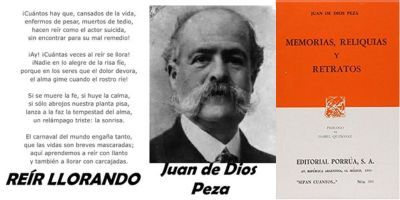
View On WordPress
#"Aquí no se sientan indios"#AperturaIntelectual#palabrasbajollaveAI#Agustín F. Cuenca#Arte#Cultura#De la gaveta íntima#Francisco Ortiz#Gregorio Oribe#Instituto Científico y Literario#Juan B. Garza (vate toluqueño)#Juan de Dios Peza#Manuel Acuña#Manuel Altamirano#Manuel Flores#Miguel Portillo#Personajes#Poema "Reír llorando"#Poesía#Thelma Morales García
2 notes
·
View notes
Text
Manuel Acuña - Hojas secas (fragmento)

Mañana que ya no puedan
encontrarse nuestros ojos,
y que vivamos ausentes,
muy lejos uno del otro,
que te hable de mí este libro
como de ti me habla todo.
- Imagen: Magdalena de Mateo Cerezo.
2 notes
·
View notes
Text
NADA SOBRE NADA
Manuel Acuña
Pues, señor, dije yo, ya que es precisopuesto que así lo han dicho en el programa,que rompa ya la bendecida prosaque preparado para el caso había,y que escriba en vez de ella alguna cosaasí, que parezca poesía,pongámonos al punto,ya que es forzoso y necesario, en obra,sin preocuparnos mucho del asunto,porque al fin el asunto es lo que sobra.Así dije, y tomandono el arpa ni la…

View On WordPress
0 notes
Text
#3 implosion of a person sitting under a grenade tree at 07:00am.
Del corazón sentimos que vienen las cosas más intensas
Cuando nos dan alas podemos llegar tan alto como nunca imaginamos
Cuando nos las cortan no vislumbramos el fondo
Lo decoramos de piedras preciosas en nuestras más profundas alegrías
Lo espinamos con la Zarza más agresiva en las penas ahogadas con alcohol y llanto
Sacrificios lo han elevado
entre manos sangrantes
de la fría piedra de un templo azteca
o como una ofrenda
en el nocturno a rosario
de Manuel Acuña
Salve a aquellos que al mínimo guiño
lo brindamos reluciente de agencia
Salve a todos los que les regresan jirones, sin deducible y devaluado.
El Canalla 23.01.23
===========================
#3 implosion of a person sitting under a grenade tree at 07:00am.
From the heart we feel that the most intense things are coming
When we are given wings we can reach as high as we never imagined
When they cut them we do not glimpse the bottom
We decorate it with precious stones in our deepest joys
We thorn it with the most aggressive Zarza in the pains drowned with alcohol and crying
Sacrifices have elevated him
Between bleeding hands
From the cold stone of an Aztec temple
or as an offering
In the Nocturna to Rosario
by Manuel Acuña
Save those who at the slightest wink
We provide it gleaming agency
Save all those who return to them, without deductible and devalued.
El Canalla 23.01.23
#elcanalla #letras #corazon #heart #manuelacuña #streetphotography #picoftheday #mexico #tulum #letters #foryou #poem #books

#elcanalla#letras#corazon#tulum#méxico#streetphotography#picoftheday#poem#heart#Manuel Acuña#books#letters#foryоu
0 notes
Photo

6 de diciembre aniversario luctuoso de Manuel Acuña #Efemérides
0 notes
Text
REUNIÓN CON VOCERO DE LA BANCADA ALIANZA PARA EL PROGRESO (APP).
REUNIÓN CON VOCERO DE LA BANCADA ALIANZA PARA EL PROGRESO (APP).

View On WordPress
#Acuña Peralta#Anthony James Ramos Vargas#APP#Bancada de Alianza para el Progreso#Camones Soriano Lady Mercedes#Chiabra León Roberto Enrique#Comisión de Educación Juventud y Deporte del Congreso de la República#Congreso de la República del Perú#Día Nacional de la Juventud y la Primavera 2022#García Correa Idelso Manuel#Julón Irigoín Elva Edhit#María Grimaneza#Marco de Ley de Juventud#Política Nacional de Juventud#Política Pública de Juventud#Proyecto de Ley N° 970/2021-CR “QUE PROPONE LA CREACIÓN DE LA LEY GENERAL DE JUVENTUDES”#Red Nacional de Juventudes del Perú - RENAJUV#Ruíz Rodríguez Magaly Rosmery#Salhuana Cavides Eduardo#Soto Reyes Alejandro#Torres Salinas Rosio#Trigozo Reátegui Chery
0 notes
Text







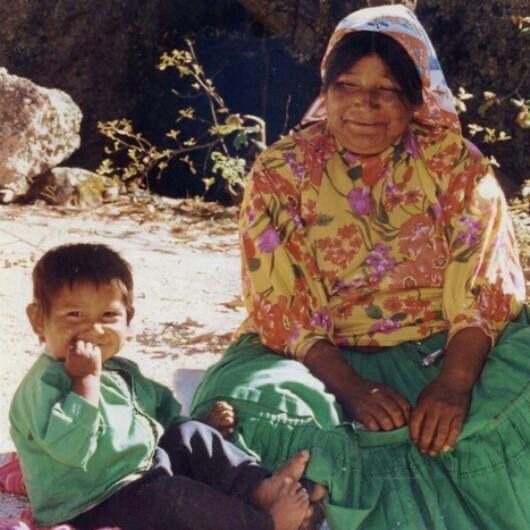




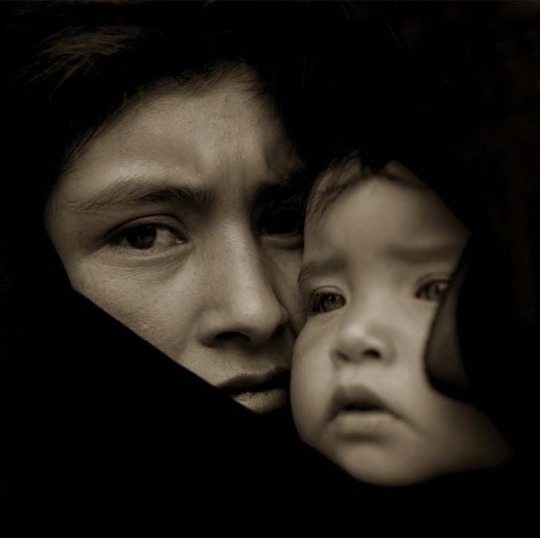









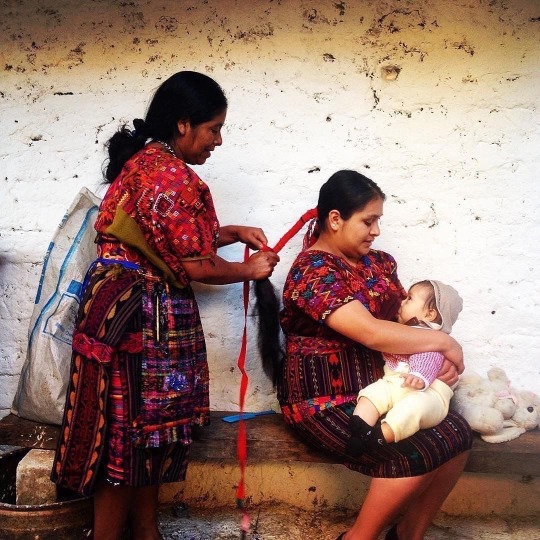
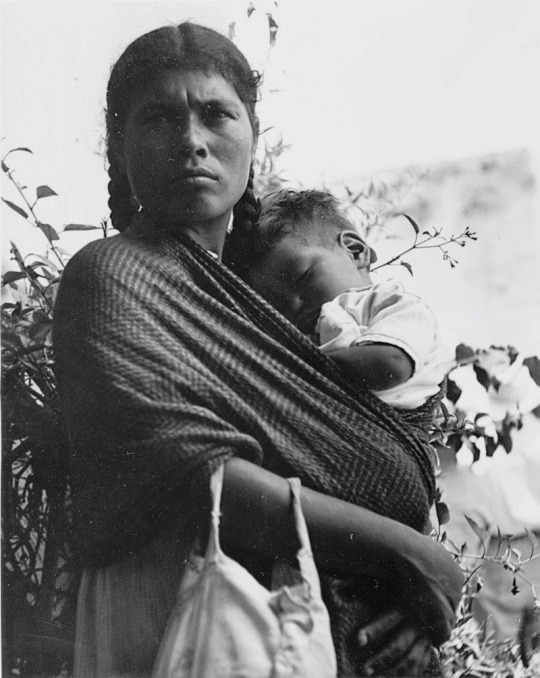

TE AMO MAMÁ
Unknown; // “Amor Eterno”, by Juan Gabriel; // “A mi madre en su cumpleaños”, by Manuel Acuña; // “Letters to Mothers” (1839), by Lydia Huntly Sigourney; // “El brindis del bohemio” by Guillermo Aguirre y Fierro; // Abraham Lincoln; // “Te amo mamá”, by Marco Antonio Solís; // “Mi madre, mi ángel guardián”, by Aracely Abundis; // “Dulzura”, by Gabriela Mistral; // Sir Edwin Arnold; // Unknown; // William Makepeace Thackeray; // Oscar Wilde; // Unknown; // Unknown
#webweaving#web weaving#webweave#web weave#poem#poetry#amor#poema#poesia#quote#día de la madre#mother#mothers day#i love you mom#aesthetic#love poem#madre#spilled thoughts#spilled poetry#spilled ink
32 notes
·
View notes
Text
Leyendo a...
Leyendo
a Pablo Neruda,
a Jaime Sabines,
a Manuel Acuña,
a Mario Benedetti,
parece que ellos
también escribían de ti...
18 notes
·
View notes
Text
TE RECUERDO AMANDA
Te recuerdo Amanda
La calle mojada
Corriendo a la fábrica
Donde trabajaba Manuel
La sonrisa ancha
La lluvia en el pelo
No importaba nada
Ibas a encontrarte con él
Con él, con él, con él, con él, con él
Son cinco minutos
La vida es eterna en cinco minutos
Suena la sirena
De vuelta al trabajo
Y tu caminando
Lo iluminas todo
Los cinco minutos
Te hacen florecer
Te recuerdo Amanda
La calle mojada
Corriendo a la fábrica
Donde trabajaba Manuel
La sonrisa ancha
La lluvia en el pelo
No importaba nada
Ibas a encontrarte con él
Con él, con él, con él, con él, con él
Que partió a la sierra
Que nunca hizo daño
Que partió a la sierra
Y en cinco minutos quedó destrozado
Suena la sirena
De vuelta al trabajo
Muchos no volvieron
Tampoco Manuel
Te recuerdo Amanda
La calle mojada
Corriendo a la fábrica
Donde trabajaba Manuel
-Víctor Jara
Autora de la animación: Lolo Góngora Acuña
7 notes
·
View notes
Text
Mi hojarasca son mis creencias, Mis tinieblas son la duda, Mi esperanza es el cadáver, Y el mundo mi sepultura… Y como de entre esas hojas Jamás retoña ninguna; Como la duda es el cielo De una noche siempre oscura, Y como la fe es un muerto Que no resucita nunca, Yo no puedo darte un nido Donde recojas tus plumas, Ni puedo darte un espacio Donde enciendas tu luz pura, Ni hacer que mi alma de muerto Palpite unida a la tuya; Pero si gozar contigo No ha de ser posible nunca,
Cuando estés triste, y en el alma Sientas alguna amargura, Yo te ayudaré a que llores, Yo te ayudaré a que sufras, Y te prestaré mis lágrimas Cuando se acaben las tuyas
5 notes
·
View notes
Text
Manuel Acuña en el recuerdo de Juan de Dios Peza
Manuel Acuña en el recuerdo de Juan de Dios Peza
#aperturaintelectual #palabrasbajollave
@tmoralesgarcia1
Thelma Morales García

View On WordPress
#AperturaIntelectual#palabrasbajollaveAI#Arte#Cultura#Ignacio Manuel Altamirano#Instituto Científico y Literario#Juan de Dios Peza#Justo Sierra#La gaveta íntima#Manuel Acuña#Personajes#Poemas#Poesía#Reír llorando#Thelma Morales García
2 notes
·
View notes
Text

"Nocturno a Rosario"
por Manuel Acuña
(1849-1873)
El poeta se suicidó a los 24 años
por causa de este fatal amor
con una mujer casada.
Pues bien, yo necesito
decirte que te adoro,
decirte que te quiero
con todo el corazón;
que es mucho lo que sufro,
que es mucho lo que lloro,
que ya no puedo tanto,
y al grito que te imploro
te imploro y te hablo en nombre
de mi última ilusión.
De noche cuando pongo
mis sienes en la almohada,
y hacia otro mundo quiero
mi espíritu volver,
camino mucho, mucho
y al fin de la jornada
las formas de mi madre
se pierden en la nada,
y tú de nuevo vuelves
en mi alma a aparecer.
Comprendo que tus besos
jamás han de ser míos;
comprendo que en tus ojos
no me he de ver jamás;
y te amo, y en mis locos
y ardientes desvaríos
bendigo tus desdenes,
adoro tus desvíos,
y en vez de amarte menos
te quiero mucho más.
A veces pienso en darte
mi eterna despedida,
borrarte en mis recuerdos
y huir de esta pasión;
mas si es en vano todo
y mi alma no te olvida,
¡qué quieres tú que yo haga
pedazo de mi vida;
qué quieres tú que yo haga
con este corazón!
Y luego que ya estaba?
concluido el santuario,
la lámpara encendida
tu velo en el altar,
el sol de la mañana
detrás del campanario,
chispeando las antorchas,
humeando el incensario,
y abierta allá a lo lejos
la puerta del hogar...
Yo quiero que tú sepas
que ya hace muchos días
estoy enfermo y pálido
de tanto no dormir;
que ya se han muerto todas
las esperanzas mías;
que están mis noches negras,
tan negras y sombrías
que ya no sé ni dónde
se alzaba el porvenir.
¡Que hermoso hubiera sido
vivir bajo aquel techo.
los dos unidos siempre
y amándonos los dos;
tú siempre enamorada,
yo siempre satisfecho,
los dos, un alma sola,
los dos, un solo pecho,
y en medio de nosotros
mi madre como un Díos!
¡Figúrate qué hermosas
las horas de la vida!
¡Qué dulce y bello el viaje
por una tierra así!
Y yo soñaba en eso,
mi santa prometida,
y al delirar en eso
con alma estremecida,
pensaba yo en ser bueno
por ti, no más por ti.
Bien sabe Díos que ése era
mi más hermoso sueño,
mi afán y mi esperanza,
mi dicha y mi placer;
¡bien sabe Díos que en nada
cifraba yo mi empeño,
sino en amarte mucho
en el hogar risueño
que me envolvió en sus besos
cuando me vio nacer!
Esa era mi esperanza...
mas ya que a sus fulgores
se opone el hondo abismo
que existe entre los dos,
¡adiós por la última vez,
amor de mis amores;
la luz de mis tinieblas,
la esencia de mis flores,
mi mira de poeta,
mi juventud, adiós!
Back to El Genio Mexicano Page
1 note
·
View note
Text




New upcoming period drama: Operación Barrio Inglés
Co-produced by RTVE with Onza (El Ministerio del Tiempo, Parot, Hernán) and the Andalusian production company Emociona Media, filming begins for Operación Barrio Inglés, a new intrigue drama for the TV channel La 1.
Spies, Nazis, British and a risky love story set in Huelva in 1940, a city where the conflicts of World War II are reproduced on a smaller scale.
Synopsis
World War II has just broken out.
Although Spain is "neutral" under Franco's dictatorship, Huelva is a strategic enclave to control the ships of both sides that cross the strait. In addition, it has an important British colony. For this reason, the Germans send members of the Secret Service to control what happens in the city, especially in the mines in the province of Huelva, owned by the English, and which provide Great Britain with ore for weapons and artillery.
In this way, Huelva becomes a veritable nest of spies from both sides, among whom the young Lucía is forced to move. She has just turned 25 and has been hired by an English mining company to work in their offices as a secretary.
There she meets the company's manager, Peter, an attractive Englishman with a dark past who drags Lucía into an adventure in which she will be forced to take sides. When you're in the middle of a war, being neutral is not an option.
Data Sheet
Executive Producer: Gonzalo Crespo Gil, José María Irisarri, Pilar Crespo, Gonzalo Sagardía, Clara Almagro, Santiago de la Rica
RTVE executive production: Borja Gálvez
Production Director: Onil Ganguly Directed by: Chiqui Carabante José Ramón Ayerra
Plot direction: Manuel Ríos San Martín Screenwriters: Manuel Ríos San Martín, Victoria Dal Vera, José Ortuño, Virginia Yagüe, Pablo Tobías and Tatiana Rodríguez
Photo Direction: Dani Salo (A.E.C.) and Alejandro Espadero (A.E.C.)
Art Direction: Hector Bertrand
Casting Direction: Juana Martínez
Music: Pablo Cervantes
Wardrobe: Matías Martini
Makeup and hairdressing: Anabel Beato
Cast
The series will star Aria Bedmar (Lucía), Peter Vives (Peter) and Rubén Cortada (Francisco).
The cast is completed by Paco Tous (José), Juan Gea (Enrique), Bea Arjona (Amparo), María Morales (Cinta), Chiqui Fernández (Rocío), Kimberley Tell (Agatha), Aida Ballmann (Miss Eva), Silvia Hanneman (Hanna), Yan Tual (Victor), Sue Flack (Miss Parker), Marco Cáceres (Juan), Almagro San Miguel (Toni), Carla Nieto (Sylvia), Ángela Chica (Belén), Clara Navarro (Rebeca), Fran Cantos (Oskar), Stefan Weinert (Schneider), Kevin Brand (Kurt), Frank Feys (Edward), Craig Stevenson (Goodwill), Edu Rejón (Gianni), Gregor Acuña (Dieter), José Luis Rasero (Civil Guard Captain), Gonzalo Trujillo (German Consul), Ken Appledorn (English ambassador) and Carlos Olalla (Father Damián), among others.
Filming
Operation Barrio Inglés will have as its settings the old dock of the English mining company and the area of Tinto River and its open-pit mines, as well as the Bellavista neighborhood in the town of Minas de Riotinto, the port of Punta Umbría and the Mazagón beach in Huelva. In Sevilla, among other locations, it will be shot at the Monsalves Palace, and in other areas of the city and province, and also in different parts of Jerez de la Frontera.
About the mines and their location:



This is the Tinto river, its waters are red due to the high concentration of sulfur and iron oxides in the land (it happens the same with the red lagoon of Mazarrón's mines, Murcia), although it's duscussed if the mining activity has been increasing this characteristic, its water are very acid and are poluted with heavy metals.
The Tinto river (ancient name: Luxia) starts its flow in the Aracena Mountain Range and after 100 km joins the Odiel river (ancient name: Urium) at the height of the city of Huelva.
The mines have been exploited since pre-roman era, by Iberians and Tartessians, to obtein iron, copper, magnesium, silver and gold, which improved trading with the Phoenician, Carthaginian, and Greek colonies that were near to this site (in fact, the city of Huelva was founded by Phoenicians, and it was called Onuba), and eventually the Carthaginians took control of the mines after their expansion throughthe Iberian peninsula. Later, it became one of the most important mining areas of the Roman Empire.
By end of the 19th century, due to económico crisis the Spanish government sold several mines to English Companies, and one of them was the Riotinto mines, who were bought by the Rio Tinto Company Limited (RTC) in 1873, as they were looking for metals that were very demanded in the country due to its high industrialization (in contrast, in Spain the industrialization was scarce and the two main regions in which it was developed were Catalonia and Basque Country)
The RTC was the builder and owner of the railway line that connected the mines with the port of Huelva, where it built a mineral dock to facilitate the unloading and transport of the extracted material by sea to England.
In Riotinto, the luxurious and exclusive neighborhood of Bellavista was built for English personnel, it was a Victorian-style neighborhood that was endowed with tennis courts, golf courses, its own cemetery, a Social Club or even a Presbyterian church.
Huelva capital will also develop under the English influence. The numerous workshops and facilities built by the RTC that gave work to more than seven hundred workers, such as the railway station, changed the appearance of the city and contrasted with the rise of a new bourgeoisie of both Spaniards and foreigners who found themselves linked to the company. The power of the company became such in the city that civil buildings depended on the interests of the company.
Proof of this are the Reina Victoria neighborhood, as a garden city that welcomed part of its employees; the construction of Casa Colón, which ended up becoming the headquarters for the company's offices; the disappeared English Hospital; or the gigantic mineral pier located on the Odiel River. The English population introduced football, being the Huelva Football Club the first football team in Spain, founded in 1889.
In Punta Umbría, the British managers of the Rio Tinto Company Limited (RTC) erected rest areas for their employees. Since 1883 some constructions were carried out in the area, in wood and of the bungalow type, but it would not be until 1896 when the RTC was granted the possibility of establishing houses in this area, to which many RTC employees and their families went in summer to the beach through the Riotinto railway.
In 1943, the corpse of Glyndwr Michael, a Welsh homeless, disguised as a British Marine oficer called William Martin with information about a fake plan of the Allies to attack Greece was found drowned near the coast of Huelva, in Punta Umbría. This was part of the Operation Mincemeat to distract the Nazis and attack Sicily instead. Operation Mincemeat was a important plot in episode 3×02, Tiempo de Espías, from El Ministerio del tiempo. Well, although in the episode the original Operation is cancelled and a character named William Martin later takes the place of the original "William Martin", so the Operation success.
Years later, in 1954 the Riotinto mines returned to national property, under the CEMRT (Compañía Española de Minas de Río Tinto)
#operación barrio inglés#aria bedmar#peter vives#rubén cortada#paco tous#juan gea#bea arjona#maría morales#chiqui fernández#kimberley tell#aida ballmann#silvia hanneman#yan tual#sue flack#marco cáceres#almagro san miguel#ángela chica#clara navarro#fran cantos#stefan weinert#kevin brand#frank feys#craig stevenson#period dramas#upcoming series#carla nieto#edu rejón#gregor acuña#jose luis rasero#gonzalo trujillo
5 notes
·
View notes
Text
Fragmento de Nocturno a Rosario de Manuel Acuña
IV
Comprendo que tus besos
jamás han de ser míos,
comprendo que en tus ojos
no me he de ver jamás,
y te amo y en mis locos
y ardientes desvaríos
bendigo tus desdenes,
adoro tus desvíos,
y en vez de amarte menos
te quiero mucho más.
V
A veces pienso en darte
mi eterna despedida,
borrarte en mis recuerdos
y hundirte en mi pasión
mas si es en vano todo
y el alma no te olvida,
¿Qué quieres tú que yo haga,
pedazo de mi vida?
¿Qué quieres tu que yo haga
con este corazón?
0 notes
Text

Mexico’s Pick! Claudia Sheinbaum For President, First Woman to hold the Job! Claudia Sheinbaum addresses her supporters after winning the Mexican presidential election, in Mexico City on June 3, 2024. Photo by Raquel Cunha/Reuters
Who Is Claudia Sheinbaum? Here’s What To Know About Mexico’s Next President
— World | June 3, 2024
Mexico City (AP) — Claudia Sheinbaum, Who will be Mexico’s First Woman Leader in the Nation’s more than 200 Years of Independence, Captured the Presidency by Promising Continuity.
The 61-year-old former Mexico City mayor and lifelong leftist ran a disciplined campaign capitalizing on her predecessor’s popularity before emerging victorious in Sunday’s vote, according to an official quick count. But with her victory now in hand, Mexicans will look to see how Sheinbaum, a very different personality from mentor and current President Andrés Manuel López Obrador, will assert herself.
While she hewed close to López Obrador politically and shares many of his ideas about the government’s role in addressing inequality, she is viewed as less combative and more data-driven.
Sheinbaum’s background is in science. She has a Ph.D. in energy engineering. Her brother is a physicist. In a 2023 interview with The Associated Press, Sheinbaum said, “I believe in science.”
Observers say that grounding showed itself in Sheinbaum’s actions as mayor during the COVID-19 pandemic, when her city of some 9 million people took a different approach from what López Obrador espoused at the national level.
While the federal government was downplaying the importance of coronavirus testing, Mexico City expanded its testing regimen. Sheinbaum set limits on businesses’ hours and capacity when the virus was rapidly spreading, even though López Obrador wanted to avoid any measures that would hurt the economy. And she publicly wore protective masks and urged social distancing while the president was still lunging into crowds.
Mexico’s persistently high levels of violence will be one of her most immediate challenges after she takes office Oct. 1. On the campaign trail she said little more than that she would expand the quasi-military National Guard created by López Obrador and continue his strategy of targeting social ills that make so many young Mexicans easy targets for cartel recruitment.
“Let it be clear, it doesn’t mean an iron fist, wars or authoritarianism,” Sheinbaum said of her approach to tackling criminal gangs, during her final campaign event. “We will promote a strategy of addressing the causes and continue moving toward zero impunity.”
Sheinbaum has praised López Obrador profusely and said little that the president hasn’t said himself. She blamed neoliberal economic policies for condemning millions to poverty, promised a strong welfare state and praised Mexico’s large state-owned oil company, Pemex, while also promising to emphasize clean energy.
“For me, being from the left has to do with that, with guaranteeing the minimum rights to all residents,” Sheinbaum told the AP last year.
In contrast to López Obrador, who seemed to relish his highly public battles with other branches of the government and also the news media, Sheinbaum is expected by many observers to be less combative or at least more selective in picking her fights.
“It appears she’s going to go in a different direction,” said Ivonne Acuña Murillo, a political scientist at Iberoamerican University. “I don’t know how much.”
Sheinbaum will also be the first person from a Jewish background to lead the overwhelmingly Catholic country.

Claudia Sheinbaum, the Presidential candidate of the ruling MORENA Party, reacts as she addresses her supporters after winning the election, in Mexico City on June 3, 2024. Photo by Raquel Cunha/Reuters
Claudia Sheinbaum claimed victory in Mexico’s presidential election, becoming the first woman selected for the job by promising to continue the political course set by her populist predecessor despite widespread discontent with persistent cartel violence and disappointing economic performance.
The climate scientist and former Mexico City mayor was the favored successor of outgoing President Andrés Manuel López Obrador. But her cool temper offers a sharp contrast in style — and a break with Mexico’s male-dominated political culture.
Sheinbaum said Sunday night that her two competitors had called her and conceded in an election that guaranteed Mexico would make history. The two leading candidates were women, and Sheinbaum is also be the first person from a Jewish background to lead the overwhelmingly Catholic country. Her main competitor, Xóchitl Gálvez, meanwhile, had a father who was Indigenous Otomi.
“I do not arrive alone. We all arrived, with our heroines who gave us our homeland, with our mothers, our daughters and our granddaughters,” Sheinbaum said with a smile, speaking at a downtown hotel shortly after electoral authorities announced an early count showed she held an irreversible lead.
The 61-year-old Sheinbaum led the campaign wire-to-wire despite a spirited challenge from Gálvez. But Sheinbaum is unlikely to enjoy the kind of unquestioning devotion that López Obrador has enjoyed.
Yoselin Ramírez, 29, said she voted for Sheinbaum, but split her vote for other posts because she didn’t want anyone holding a strong majority.
“I don’t want everything to be occupied by the same party, so there can be a little more equality,” she said without elaborating.
The main opposition candidate, Gálvez, who rose from selling snacks on the street in her poor hometown to start her own tech firms, tried to seize on Mexicans’ concerns about security and promised to take a more aggressive approach toward organized crime.
By Monday morning, with the 76.1% of the polling place tallies counted by Mexico’s electoral authority, Sheinbaum had 58.6% of the vote, followed by Gálvez with 28.3%. Longshot candidate Jorge Álvarez Máynez trailed with 10.5% of the vote. Sheinbaum’s Morena party was also projected to hold its majorities in both chambers of Congress.
If the margin holds, it would approach López Obrador’s landslide victory in 2018. He won the presidency after two unsuccessful tries with 53.2% of the votes, in a three-way race where National Action took 22.3% and the Institutional Revolutionary Party took 16.5%.
The elections were widely seen as a referendum on López Obrador, who has expanded social programs but largely failed to reduce cartel violence in Mexico.
In Mexico City’s main plaza, the Zocalo, Sheinbaum’s lead did not draw the kind of cheering, jubilant crowds that greeted López Obrador’s victory in 2018. Those present were enthusiastic, but comparatively few in number.

Supporters of Claudia Sheinbaum cheer after the first results showed her leading by a large margin. Photograph: Manuel Velasquez/Getty Images
Sara Ríos, 76, a retired literature professor at Mexico’s National Autonomous University, celebrated after hearing that Gálvez had conceded.
“The only way that we move forward is by working together,” Ríos said. “She is going to work to bring peace to the country, and is going to manage to advance, but it is a slow process.”
Earlier, Fernando Fernández, a chef, 28, joined the relatively small crowd, hoping for a Sheinbaum victory, but even he acknowledged there were problems.
“You vote for Claudia out of conviction, for AMLO,” Fernández said, referring to López Obrador by his initials, as most Mexicans do.
But his highest hope is that Sheinbaum can “improve what AMLO couldn’t do, the price of gasoline, crime and drug trafficking, which he didn’t combat even though he had the power.”
Sheinbaum promised to continue all of López Obrador’s policies, including a universal pension for the elderly and a program that pays youths to apprentice.
Gálvez, who ran with a coalition of major opposition parties, left the Senate last year to focus her ire on López Obrador’s decision to avoid confronting the drug cartels through his “hugs not bullets” policy. She pledged to more aggressively go after criminals.
Julio García, a Mexico City office worker, said he was voting for the opposition in Mexico City’s central San Rafael neighborhood. “They’ve robbed me twice at gunpoint. You have to change direction, change leadership,” the 34-year-old said. “Continuing the same way, we’re going to become Venezuela.”
López Obrador claims to have reduced historically high homicide levels by 20% since he took office in December 2018. But that’s largely a claim based on a questionable reading of statistics. The real homicide rate appears to have declined by only about 4% in six years.
In Iztapalapa, Mexico City’s largest borough, Angelina Jiménez, a 76-year-old homemaker, said she came to vote “to end this inept government that says we’re doing well and (still) there are so many dead.”
She said the violence plaguing Mexico really worried her so she planned to vote for Gálvez and her promise to take on the cartels. López Obrador “says we’re better and it’s not true. We’re worse.”

Left: A 2022 protest against gender violence and femicide in Mexico City, Mexico. File photo by Raquel Cunha/Reuters
These Are The Pressing Gender-Related Issues Facing Mexico’s Mext President
Claudia Sheinbaum’s name will go down in Mexican history. The governing party candidate won Mexico’s presidential election on Sunday, a turning point in a mostly conservative nation that for more than two centuries has been exclusively ruled by men.
Elsewhere in Latin America, women have led countries including Argentina, Brazil, Bolivia, Chile, Guyana, Nicaragua, Honduras, Ecuador, El Salvador, Panama, Haiti and Costa Rica.
Mexican women won the right to vote in 1953. No law prevented female candidates from holding office, but sexism and “macho” culture continue to permeate the country of 129 million people.
Prior to the current presidential race, during which Sheinbaum maintained a comfortable lead against opposition candidate Xóchitl Gálvez, only two women had officially sought Mexico’s presidency. Both failed.
In her bid to replace outgoing President Andrés Manuel López Obrador, Sheinbaum struggled to construct an image of her own, leaving many wondering whether she can escape the shadow of her mentor.
Women currently lead some key Mexican institutions, such as the Senate, the Supreme Court and the National Electoral Institute. Mexico ranks third among Latin American nations with the most women in the national Cabinet — 44 percent — and has 10 female governors among its 32 states.
In some Indigenous villages, though, men still hold the power. Among the issues that Mexican women face are femicide, or women killed because of their gender, a gender employment gap and inadequate policies guaranteeing sexual and reproductive rights. Sheinbaum, 61, will need to address these after she takes office on Oct. 1.
Here’s A Look At The Issues:
Femicide And Gender Violence
Demonstrations on International Women’s Day on March 8 are painful reminders that many Mexican women disappear or are killed on a daily basis. According to U.N. Women, up to 10 women are victims of femicide each day in Mexico. The number totaled 3,000 in 2023. Thousands more have disappeared. In many cases, it is their mothers, feeling abandoned by the government, who have taken on the task of searching for them.
Most femicides go unpunished due to Mexico’s inefficient justice system, which frequently dismisses reported crimes or fails to properly investigate and prosecute them. According to the National Institute of Statistics and Geography, more than 40 percent of Mexican women who are 15 years old or older say they have been victims of some sort of violence in their lives.
During her campaign, Sheinbaum said she would replicate measures against gender-based violence that were implemented when she was mayor of the capital. They include the creation of an anti-femicide prosecutor’s office and legislation that would force offenders to leave their homes.
“We transform, we are warriors who open paths for other women,” Sheinbaum said.
In spite of this, Sheinbaum has been criticized by feminists and activists arguing that her government lacked gender-related policies. Excessive use of force against women during demonstrations has been flagged as well.
Sexual And Reproductive Rights
Teenage pregnancy in Mexico has raised concern. According to official figures from 2021, the latest available, there were 147,279 births among adolescents between 15 and 19 years old, and 3,019 among girls under 15.
Mexico’s Supreme Court ruled in 2023 that national laws prohibiting abortions are unconstitutional and violate women’s rights, but further state-by-state legal work is pending to remove all penalties.
Twelve of Mexico’s 32 states have decriminalized abortion, most of them in the past five years. A few more states allow abortion if the mother’s life is in danger, and it is legal nationwide if the pregnancy is the result of rape.
In most states where it has been decriminalized, advocates say they face persistent challenges in making abortion safe, accessible and government funded. Sheinbaum did not address the topic during her campaign.
Gender Employment Gap
According to official figures, 76 percent of Mexican men and only 47 percent of women are employed.
Among working women, 54 percent have informal jobs and they dedicate close to 43 hours per week to household chores. According to the Mexican Institute for Competitiveness, this limits the time that women can devote to the labor market. Education and access to public transportation are determining factors as well.
Women usually earn less money than men. In Mexico City, the difference is 6 percent, while in other states the gap can reach up to 25 percent.
#Mexico 🇲🇽#Mexico’s Elections#New President#President Elect | Claudia Sheinbaum#NPR.ORG#Associated Press
0 notes